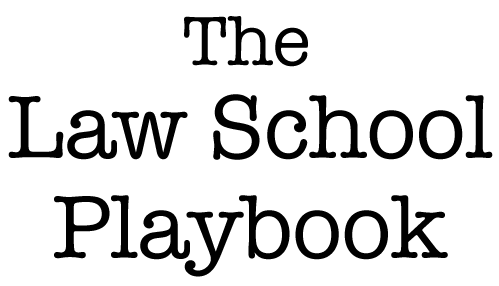Dear Student,
Welcome to The Law School Playbook! I’m Halle Hara, a professor of academic success and personal skills coach to law students and attorneys. I’m glad you’re here! If you find yourself just getting through your reading assignments, you’re not alone. The good news is that there are easy strategies that take no additional time but will ensure you’ll get a lot more out of your reading. One of those strategies involves finding your inner actor.
Now, before you decide this topic is not for you, consider that the roles you will play will be ones you actually want—like a lawyer or a judge. You could play a client too, but I am guessing that might be less attractive to you. And here’s the best part: research shows that adopting reading strategies like this one can really make a difference in your law school performance. If you don’t believe me, check out Jane Grisé’s book Critical Reading for Success in Law School and Beyond. Grisé sets forth data showing that the top 10% of students assume a role as they read a case, the top 15% think about how they might use the case in practice, and the bottom 20% read without taking on a role and based on fear of being called on in class.
The bottom line is that advanced readers—and students who perform at a higher level—read with the mindset of solving a new legal problem. In contrast, novice readers read to memorize dates, places, and names, which is a lot of the information included in briefs at the start of 1L year. According to a study by Leah Christensen, a Professor at University of San Diego School of Law, the students who perform the best read as practicing attorneys preparing for a client meeting about a similar case.
The roles you assume when you read can vary (and likely should to keep things interesting). For instance, you can play a lobbyist making policy recommendations for a legislature to change a statute, you can advise a client as to whether to file an action, or you can consider how to defend an action based on similar facts. The important thing is to avoid approaching cases in a neutral way. Rather, best practices urge you to approach cases as a user for your fictitious client, for the fictitious opinion you will write, and so on. This is very different than the way you’d approach a beach read or a BuzzFeed article.
You can work to be an expert reader by asking yourself questions about how you might use the decision. For example, those questions could be:
How could I use this case as an attorney to analogize to my client’s facts so the judge would reach the same outcome?
How could I use this case as an attorney to distinguish my client’s facts so the judge would reach a different outcome?
How could I use this case if I were a judge wanting to reach a different outcome?
Just remind yourself before and during your reading that you are a user of the decision, and not a neutral reader. If you feel yourself resisting, recall that scientific data shows that students who read as an advocate perform at a higher level. After all, this is how you’ll approach cases in practice, so why not start now? Up your reading game and find your inner actor.
If would you like to read this episode, get suggestions for further reading, or to request individual coaching with me, please visit my website at www.lawschoolplaybook.com.
As always, do your best, and I’ll be rooting for you!
References and Further Reading
Leah M. Christensen, Legal Reading and Success in Law School: An Empirical Study, 30 Seattle U. L. Rev. 603 (2007).
Leah M. Christensen, One L of a Year: How to Maximize Your Success in Law School 31 (2012).
Jane Bloom Grisé, Critical Reading for Success in Law School and Beyond 10, 22–25 (2017).
James F. Stratman, When Law Students Read Cases: Exploring Relations Between Professional Legal Reasoning Roles and Problem Detection, 34 Discourse Processes 57, 77 (2002).
Judith Welch Wegner, Reframing Legal Education’s “Wicked Problems,” 61 Rutgers L. Rev. 867, 914 (2009).
